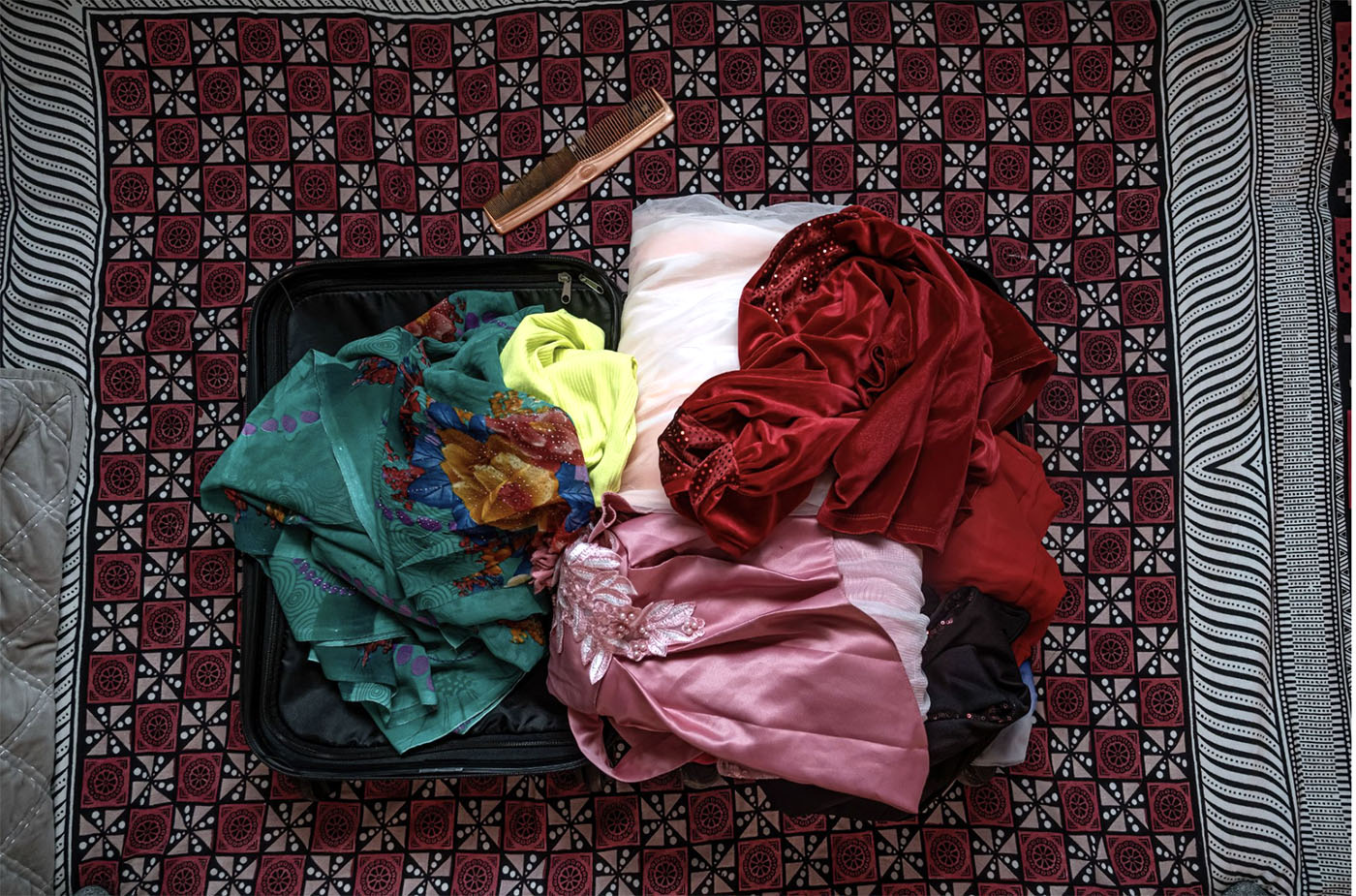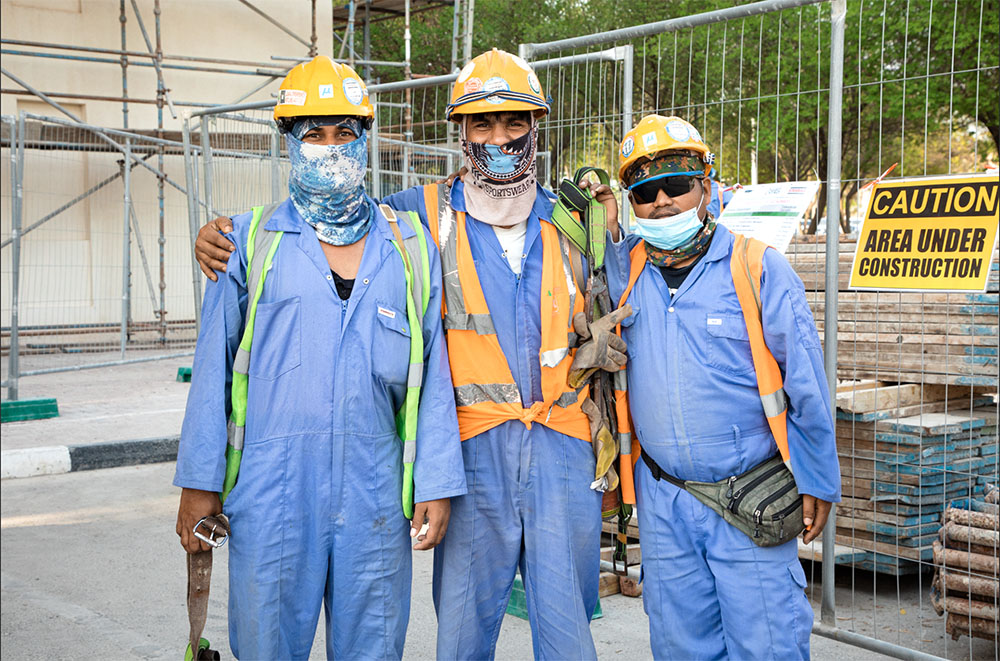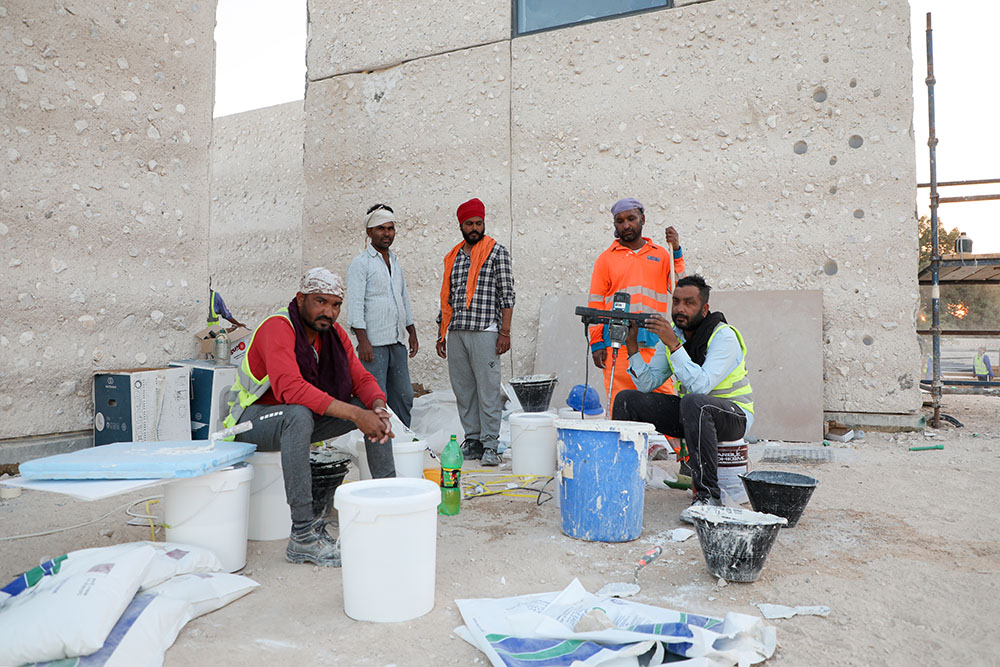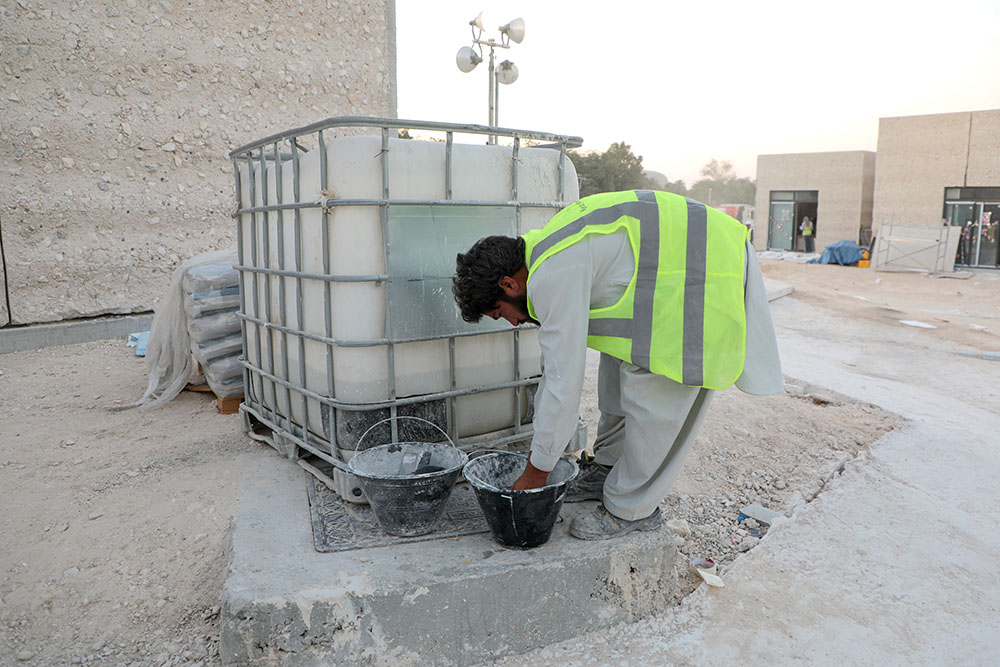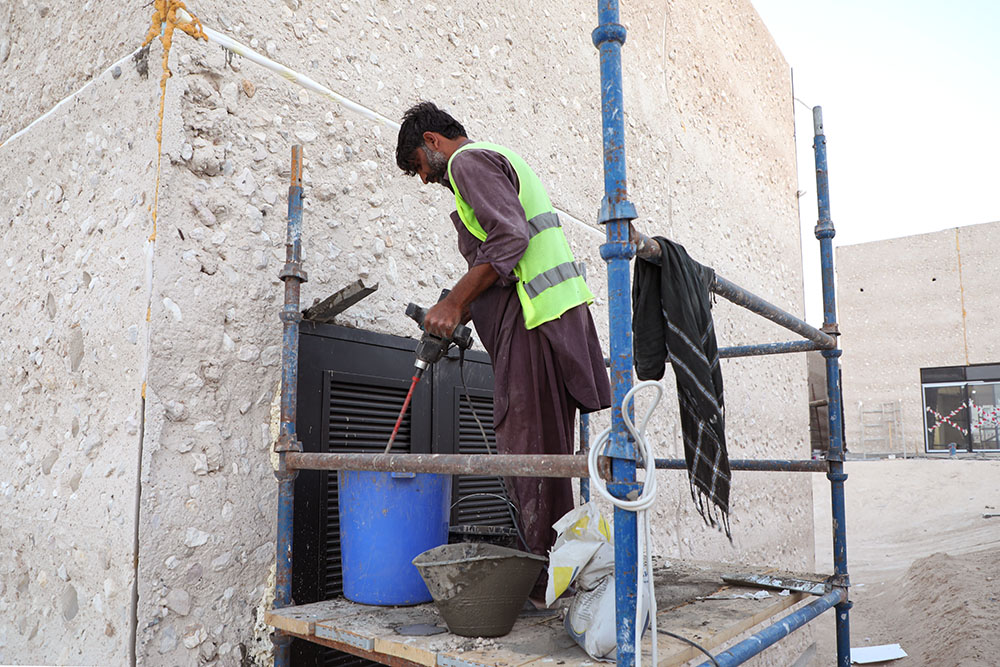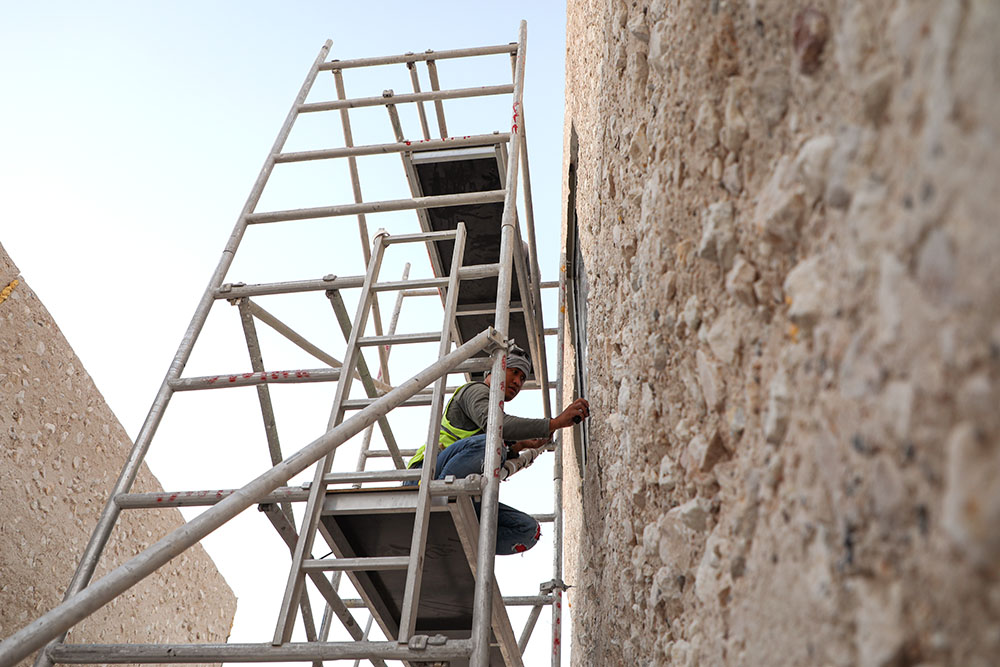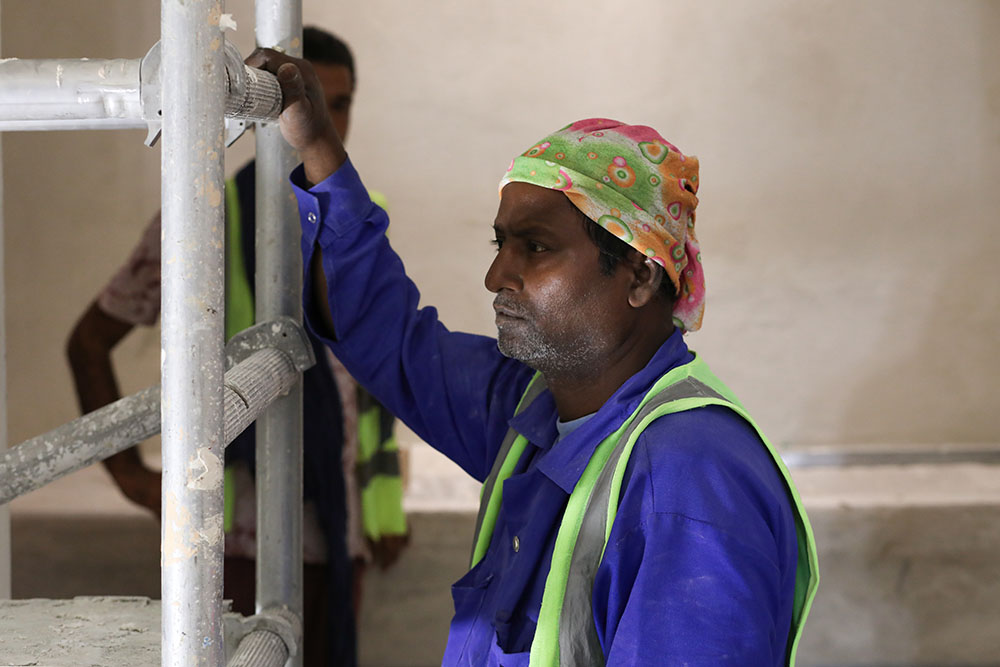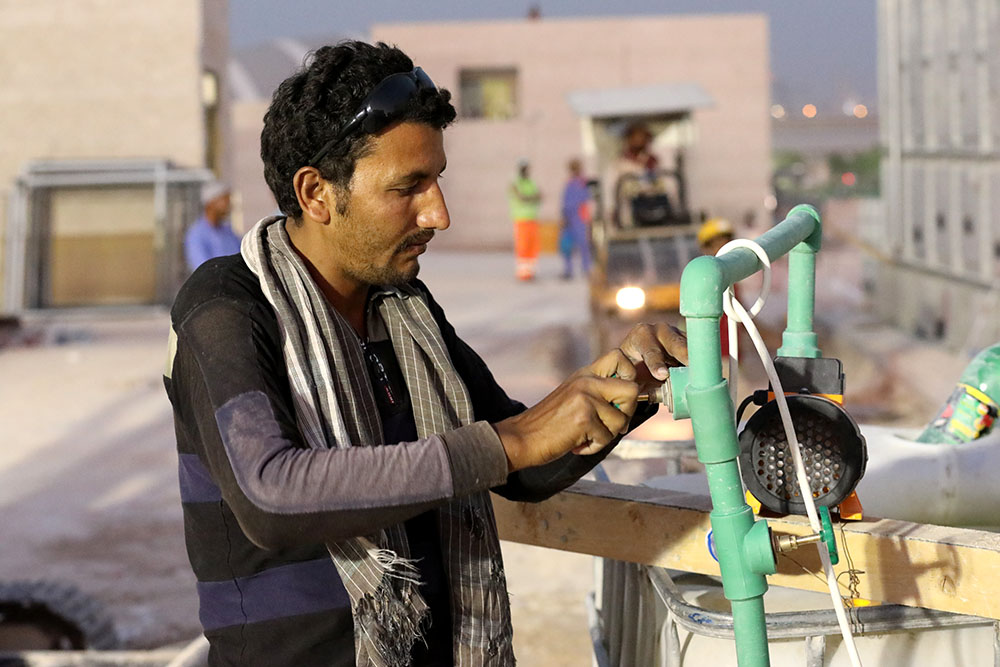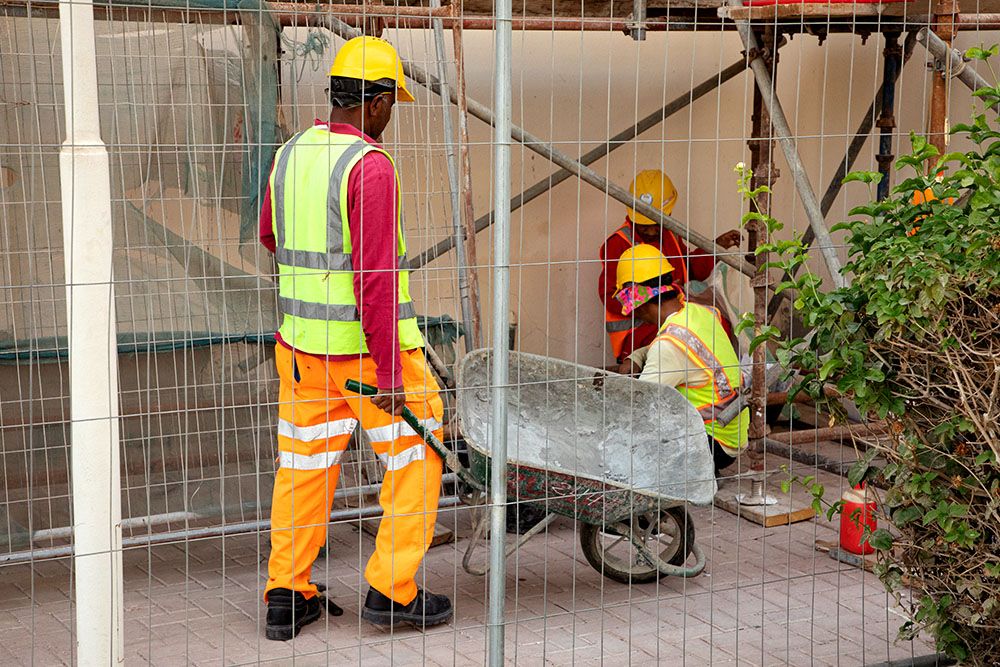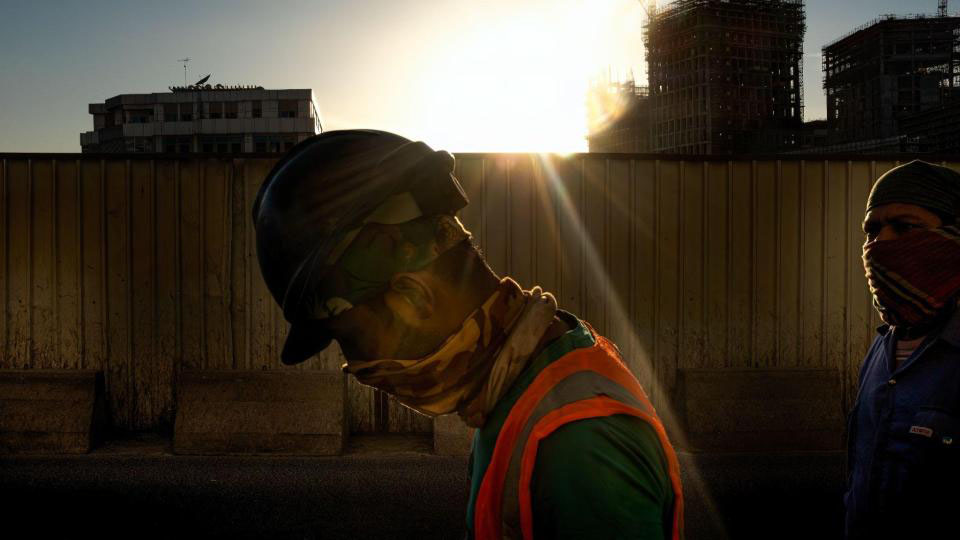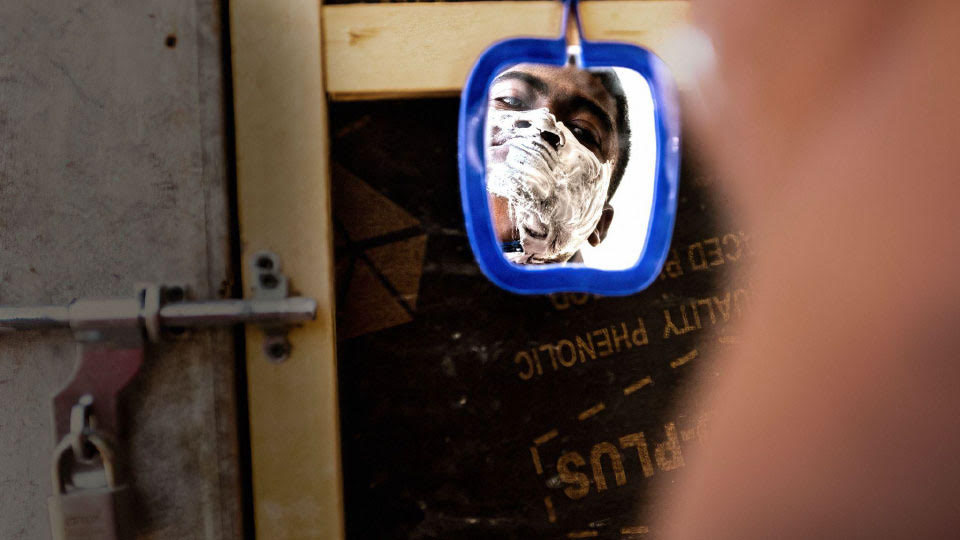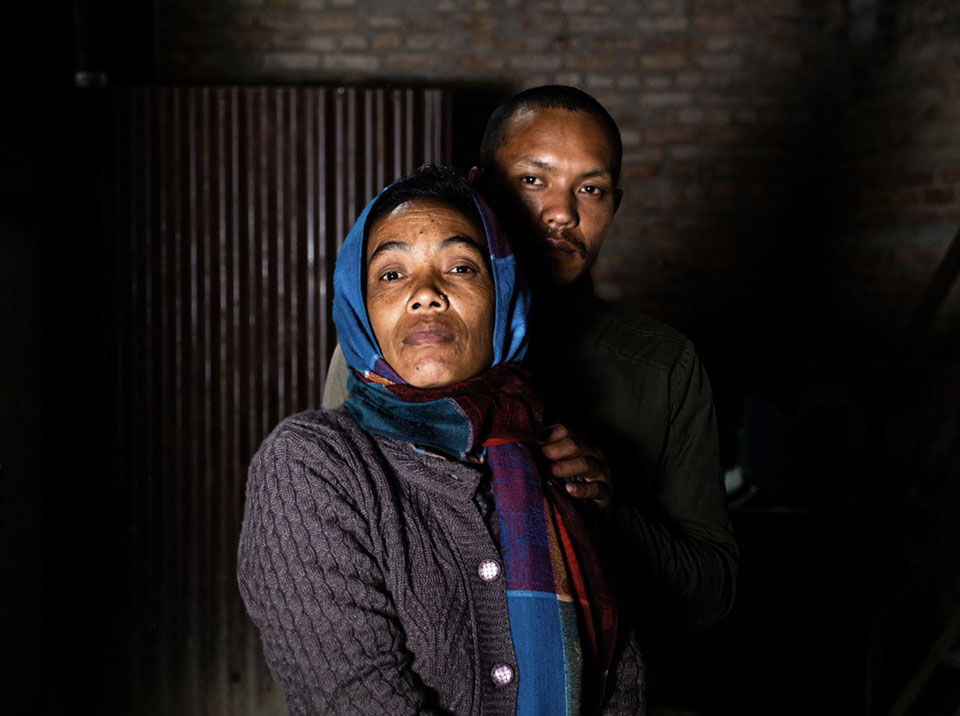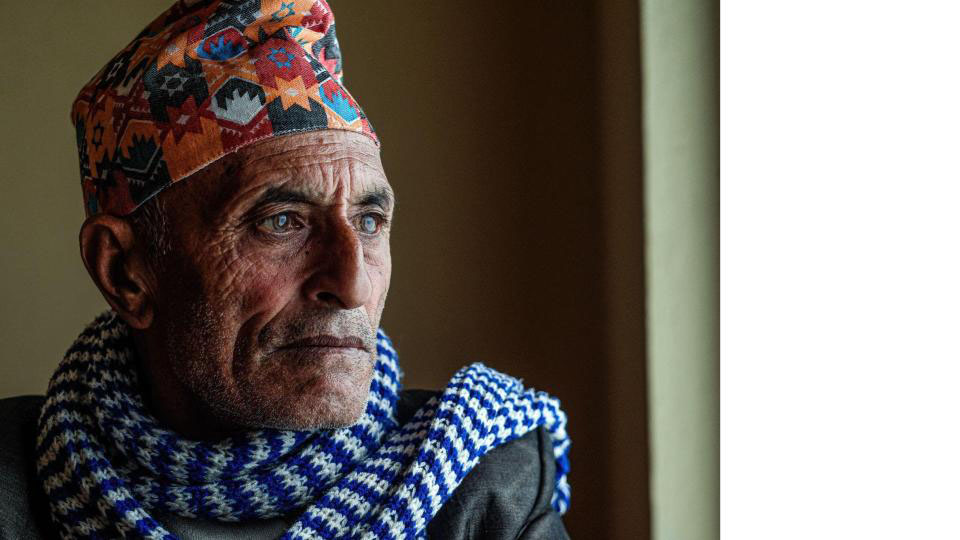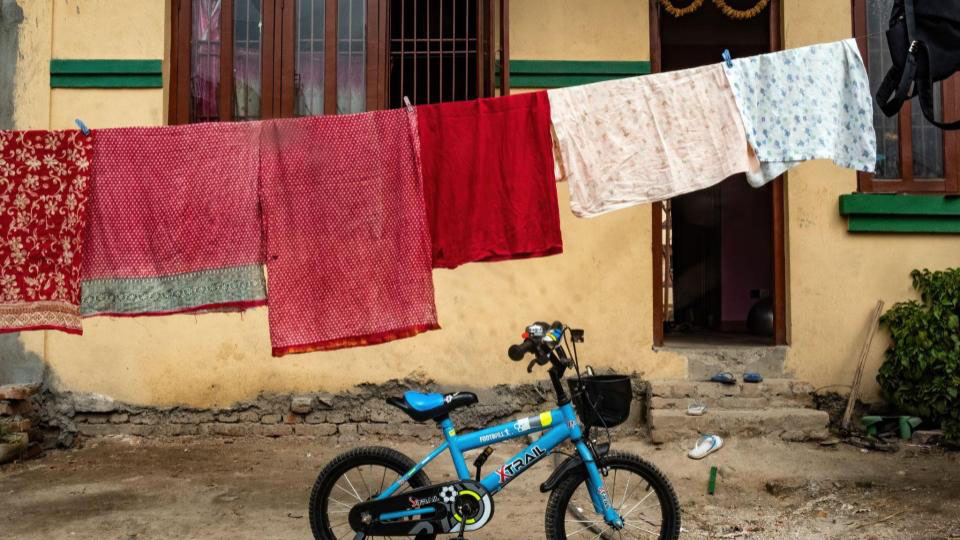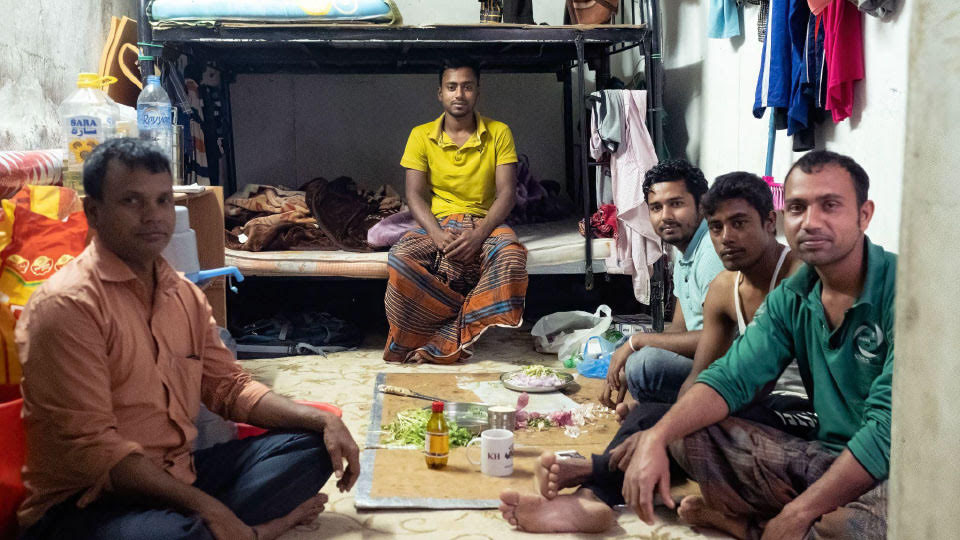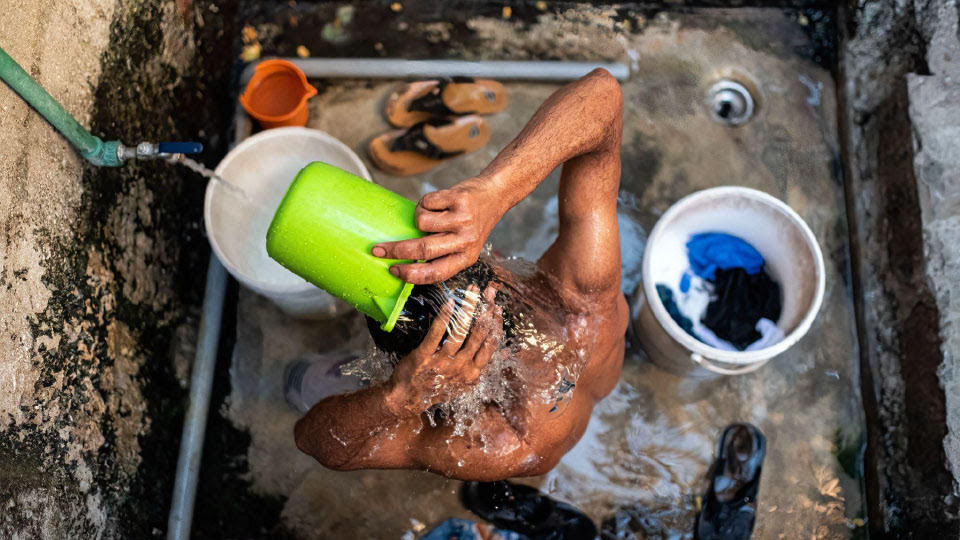The work isn’t over for the workers who built stadiums for FIFA World Cup 2022. What’s next for them?
Zeest Marrium & Mohamed Badarne
The much-awaited FIFA World Cup kicked off in November 2022, marking the 22nd tournament in Cup history and the first to be hosted in the Middle East. A country smaller than the state of Connecticut appeared to be an unusual choice to host the competition. However, the Qatari government was adamant about bringing the global sporting event home, and it transformed its capital city of Doha with state-of-the-art stadiums, transport systems, hotels, and other facilities to accommodate nearly 1.4 million fans.
Behind the scenes, for more than a decade, were the migrant workers who monumentalized this event in the Middle East’s history. This migrant workforce, estimated at nearly 2 million, provided nearly 95 percent of the labor. The migrant labor force, particularly the construction workers, came from India, Nepal, Bangladesh, Pakistan, and Sri Lanka. They spent years away from their loved ones in search of a better future. In return, they brought a one-of-a-kind global sporting event to Qatar. The reliance on the migrant workforce in the country has existed long before the World Cup and will continue well into the future. The seven stadiums, innumerable hotels, and other infrastructure stand as a testament to the migrant workers’ unheeded contributions. I curated Daʼūb, which means ‘tireless’ in Arabic, with photographs I took, along with those belonging to Palestinian photographer Mohamed Badarne. Between us, we capture behind the scenes of migrant construction workers in Qatar and their lives in their home countries.
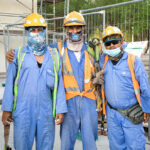
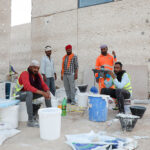
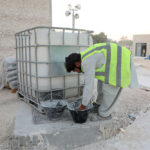
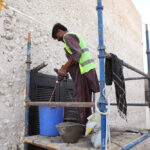
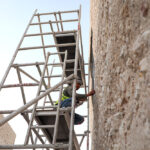
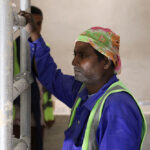
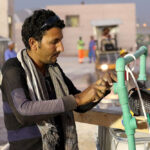
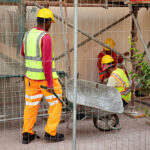
In the summer of 2022, I wanted to photograph the faces working behind the scenes on projects for the FIFA World Cup. For a woman photographer, access to construction sites proved to be troublesome, especially considering the global controversy around the use of a foreign migrant workforce in the building of the country’s new sports stadia. Despite having the required consent forms, I had my camera confiscated for an hour at the first construction site. Upon its release, I was forced to delete all the pictures. After days of trying and retrying, I was finally allowed to take photographs.
Initially, when I was photographing the workers, they weren’t interested in responding to my questions. Eventually, I put down my camera and asked them how their day had been. Eventually, the construction workers felt more at ease, and provided insights into their lives and work, in Qatar.
Looking back, the conversations I had with the men on the different sites were memorable. A common sentiment that emerged was a real regard for their fellow migrant workers, in Qatar. It was as though these men found a home away from home. Not only did they comfort one another during work, but also in their residential complex, they played games, recited poetry and watched films together.
For many, the hardest part of the job was being away from home and family. Even though some of them were outside of India while Covid 19 ravaged the country, news of family deaths were difficult to take, from afar. One man I spoke with had lost his mother, grandfather, and a dear friend.
Among the workers there were avid football enthusiasts, who’d played football at home, and felt that building the stadiums were a personal contribution to childhood heroes. One told me: he was doing this for Messi and Ronaldo, and that kept him going.
Others were there because of the pressure parents had put on them to earn enough to support their extended families. As I walked through the construction sites, I could understand why some workers didn’t want to speak with me. Jameel, in one of my photos, asked me what my project was about. After I explained my photos were for a student competition, he said, “We all want to make it in the headlines, but not how it’s used to being put in the media.”
Hope kept many of the men going. Abdul was going to be married in the spring. Despite not yet meeting his bride, he enthused, “We still haven’t spoken to one another, so I don’t know what she’s like. But she must be good because my Amma picked her for me.”
[Zeest Marrium’s photographs won the Student Initiative Competition organized by the Qatar Museum, and were exhibited at the Liwas Design Studios and Lab in February, 2023.]
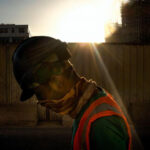
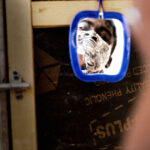
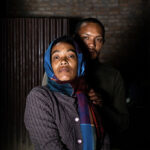
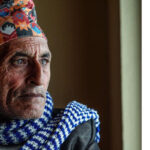
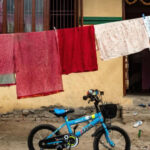
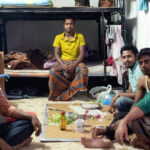
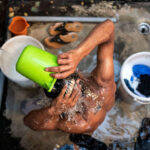
Between 2017 and 2022, Mohamed Badarne made several trips between Qatar and Nepal for “Forgotten Team”, an indepth reporting and photographic project about migrant workers who built the infrastructure for the 2022 FIFA World Cup. His photographs reveal peoples’ harsh realities at work and the struggles of families when loved ones die while working abroad.
Raj Kumar Syangba was 48 years old when he passed away in Qatar, where he worked as a construction worker for almost 14 years. During this period, he used to go back to Nepal and visit the family every two years. Suddenly, news arrived about his death. The company informed the family that he had died of a heart attack. His friends said he had fallen on the road on his way back from work. “So, we don’t know the real cause of his death. Because the man dies alone, in alienation,” explained Syangba’s son, Bikram Syangba. “We didn’t want him to go back to Qatar. Unfortunately, he didn’t listen to us”
Another unexpected death devastated a father, Bhakta Bahadur Khadka, who explained to photographer Badarne: “I have three sons in Qatar who have always told me: ‘We are working because we want you to rest from work.’ All of them worked in stadium facilities, and I won’t forget that moment when they told me that they found their brother Hari Khadka dead in the early morning that day. For a moment, I felt that I couldn’t breathe. All I wanted was to shout and ask them to return back home. Hari Khadka was the closest to my heart. His wish was to build a house and have a family. But all our dreams were dashed.”
A widow, Masali Sarki, also told Badarne about lost dreams “After we bought land to build a new house because an earthquake destroyed the old one, my husband, Ram Sarki, decided to go to Qatar, hoping that it would be a good opportunity to repay our accumulated debt. His first visit to Qatar was in 2014. He worked for almost two years, but he was not satisfied because the company did not pay what the recruitment agent had promised. He returned to Nepal for a short time, then went back to Qatar to join a new company to work for 2,000 Qatari Riyals (500 Euro). Suddenly, after a few months, he died in his sleep. My children and I had dreamt of his return; then our dreams stopped.”
Nearly four months after the World Cup, no one holds Qatar and FIFA accountable for workers’ deaths and the violations of their rights. The 2022 FIFA World Cup wasn’t the beginning or the end of the exploitation of people in search of work and decent living standards for themselves and their families.



